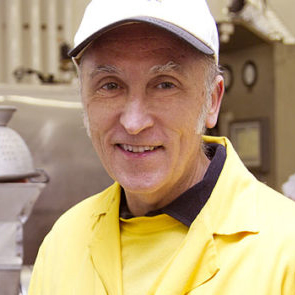It’s Time We Engage in the Processed Foods Debate
PERSPECTIVE

July 2021
Volume 75, No. 6

To join an online discussion on this topic, IFT members can visit IFT Connect at iftconnect.org/processed-foods. Share your thoughts and see what others have to say!
Earlier this year, I was volunteering at my church with a food drop-off. While chatting with a fellow volunteer, I mentioned that I wrote a blog on processed foods. She responded, “Oh, about how bad they are for you?” I pointed out that we were collecting only processed foods.
Sadly, this encounter was not an isolated incident.
How can we best communicate food science to the general public? It is a question that has haunted me. We have a message to tell. We adhere to basic principles that largely contradict much of what we read about food in the media. Major decisions face our society. They will affect production, processing, distribution, and consumption of foods. Input from food activists, nutritionists, the food industry, and others will shape these policies.
Let’s End the Blame Game
Food scientists need a place at the table. Yet, at present, nobody listens to us, and we have devolved into a circular blame game. Society blames increases in obesity and chronic diseases on consumption of processed foods. We blame the person for putting on weight or blame the food for making us overeat.
Meanwhile, writers with limited backgrounds in nutrition dispense dietary advice in print, on air, and online. For consumers, these advocates project much more credibility than physicians, dietitians, or nutritionists. Some trained professionals have jumped on the anti-processed-food bandwagon, but many freelance critics of processed foods reject basic nutrition.
At the University of Georgia, I taught a class in food processing. One day, a student brought me a small, paper table tent displayed in all cafeterias on campus. It advocated eating fresh, whole foods and avoiding processed ones. Among the processed foods listed was whole milk. Reduced-fat (2%) milk appeared on the list of whole foods. The incident gave me a mission.
Upon retirement, I decided to write a book to defend processed food. My editor suggested that I write a blog to publicize the book. Initially, I had no interest, but the bad press on processed foods kept coming. My retired soul could not rest. I took up blogging to promote my ideas.
It is clear we are not effectively communicating our perspective. As food scientists we make one of two mistakes: We are either too forceful or too defensive. Our scientific side screams, “We are right, and you are wrong!” Our reflective side whispers, “Food additives are not as bad as you think!” Somehow, we need to find a middle road.
My reading led me to two great books: Future Foods, and Molecules, Microbes, and Meals. Neither Julian McClements nor Alan Kelly was arrogant. Neither author was defensive. They found that happy medium that represents a reasoned approach with an appeal to logic. Make no mistake: We will not reach those who openly reject processed food. But there is a constituency out there who will listen to our message.
Finding Middle Ground
I plead guilty to being too arrogant at times and too defensive at others. I seek that middle ground. As I continued my blog, I expanded my reading selections. I read books by our critics. Some were painful to read and strengthened my convictions. Others caused me to rethink my positions. My views on sustainability, dieting, and food deserts saw significant changes. I stopped defending artificial colors, or foods with high levels of salt or sugar whether processed or homemade.
Meanwhile, I’ve developed relationships with former critics. We will not reach those who adamantly reject processed foods. But there are many we can reach on a middle road if we respectfully and honestly play to our strengths and acknowledge our weaknesses. A recent report by the PR firm Edelman suggests that trust in the food and beverage industry is rising. At the same time, trust in science and journalism is falling. A defense of processed food requires increased visibility and engagement with those outside our field.
We need to start discussions with dietitians and nutritionists. Can we establish common ground on nutritional value of foods and food additives? Is the discussion in the media becoming elitist? Not everyone can afford the “healthy diet” prescribed by self-trained nutritionists on the web. It is time that food professionals come together to seek agreement on food issues. At times we will agree to disagree, but we must make progress. Otherwise, we will lose that seat at the table when government reforms the food system.
To join an online discussion on this topic, IFT members can visit IFT Connect at iftconnect.org/processed-foods. Share your thoughts and see what others have to say!
Food Technology Articles

How to Achieve EPR-Forward Packaging
In this two-part series, the author explores the history of Extended Producer Responsibility (EPR), what is needed to help EPR succeed, and how brands can best prepare for EPR.

Smart Steps to Peak Traceability
Creating an effective road map to advance your food traceability program is key to overcoming data, process, and stakeholder challenges.

Ensuring Quality and Safety in Fried Foods
In this column, the author describes basic principles for maintaining frying oil quality and safety.

Best Practices for Chemical Hazards
This column offers expert tips on best practices to help mitigate food chemical hazard risks that have made recent headlines, including PFAS, BVO, and heavy metals.

Foodborne Pathogens: The Unusual Suspects
In this article, readers will learn about some of the less common foodborne pathogens.
Recent Brain Food

A New Day at the FDA
IFT weighs in on the agency’s future in the wake of the Reagan-Udall Report and FDA Commissioner Califf’s response.
Members Say IFT Offers Everything You Need to Prepare for an Uncertain Future
Learn how IFT boosts connections, efficiencies, and inspiration for its members.

More on the FDA's Food Traceability Final Rule
In a new white paper, our experts examine the FDA’s Food Traceability Final Rule implications—and its novel concepts first proposed by IFT.
Job Satisfaction in the Science of Food is High but Hindered by Pain Points
IFT’s 2022 Compensation and Career Path Report breaks it down.



